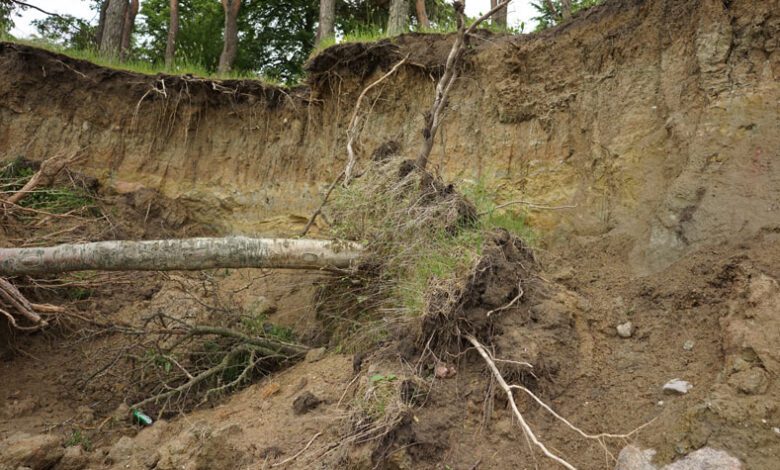New Research exposes disturbing surge in soil erosion across western ghats, with Tamil Nadu facing highest losses
The alarming increase in soil erosion in the Western Ghats raises concerns about the region's vulnerability to disasters.

The Western Ghats, a crucial mountain range along India’s west coast, is facing a severe threat of soil erosion, according to a recent study led by researchers from the Indian Institute of Technology (IIT), Bombay. The study utilized data from the US earth observation satellite LANDSAT-8, along with inputs like Digital Elevation Model (DEM) and rainfall records, to assess soil loss rates from 1990 to 2020. Shockingly, the findings reveal a staggering 94% increase in soil loss in certain areas over this 30-year period.
The Western Ghats, renowned for its unique biodiversity, has suffered from unsustainable and unplanned human activities, posing significant challenges for its ecosystem. Tamil Nadu, Gujarat, and Maharashtra are among the states most adversely affected, with Tamil Nadu experiencing the highest rate of soil loss, a remarkable 121% increase from 1990 to 2020. The study emphasizes the urgent need for policymakers to address these challenges, emphasizing the importance of reducing human disturbance and increasing conservation efforts.
The alarming increase in soil erosion in the Western Ghats raises concerns about the region’s vulnerability to disasters. The study attributes this rise to the combined effects of climate change and mismanagement of land. Heavy rainfall events have intensified due to climate change, making the region susceptible to large-scale floods. The repercussions extend to the region’s unique wildlife species, whose continuity is jeopardized by the loss of fertile soil.
Agricultural losses and declining land productivity are additional risks associated with soil erosion. As the soil quality diminishes, there are potential adverse effects on freshwater sources, posing significant ecological and socioeconomic challenges. This not only threatens the biodiversity of the Western Ghats but also underscores the need for immediate action to mitigate climate change impacts.
The study underscores the importance of soil conservation activities and the reduction of anthropogenic disturbances to counter the escalating impact of climate change. By doing so, not only can the damage caused by soil erosion be averted, but the region’s fragile ecosystem can be safeguarded. The researchers advocate for physical monitoring of soil loss and erosion at various locations across the Western Ghats to validate remote sensing data. The study employed the Universe Soil Loss Equation (USLE) method, digitizing maps and utilizing advanced computing facilities at IIT Bombay to process large datasets.
You might also be intersted in – Three women to become temple priests in Tamil Nadu, first such move for inclusivity



